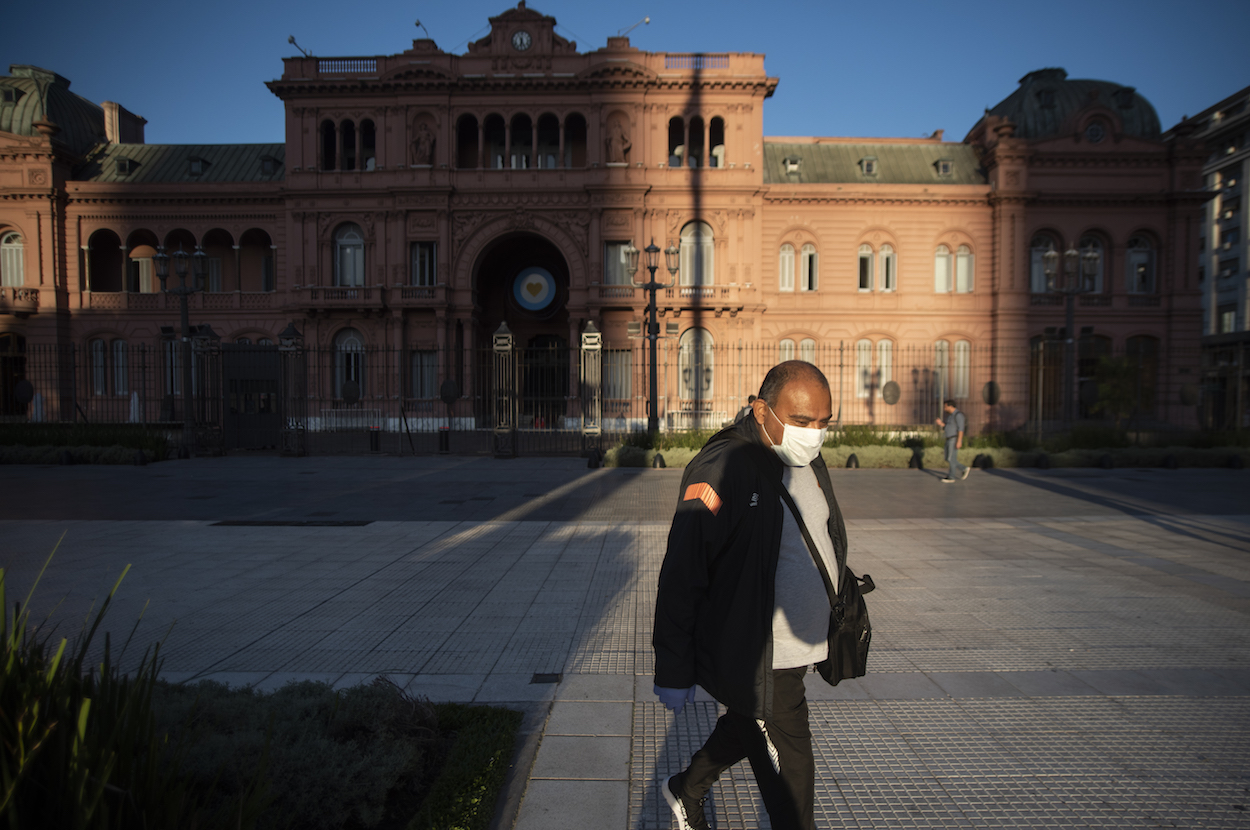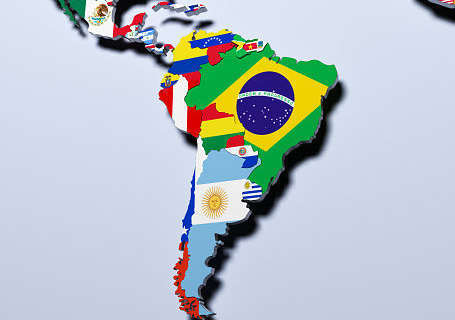RIO DE JANEIRO, BRAZIL – Latin America faces its umpteenth challenge in an increasingly uncertain scenario. The region has not reported cases of SARS-CoV2 coronavirus infection at the same level as Europe, at least not yet – an adverb that haunts from Mexico to Brazil – but is already on high alert.
The uncertainty is total in this vast territory of over 600 million inhabitants, where political leaders exist who do not take health recommendations seriously, tensions between countries aggravated by the pandemic, and an increasingly fragile economy that is averting any glimpse of certainty. The challenge is compounded by the weaknesses of most health systems, with a per capita spending far below that of the more industrialized countries.
At the start of the year, Latin America was glimpsing a new perspective following the popular uprisings that engulfed part of its countries in late 2019.

In Colombia and Chile governments were stuck between a rock and a hard place; Argentina was inaugurating a president (Alberto Fernández) and consolidating the political turnaround of the three main economies, which had begun a year earlier with Jair Bolsonaro’s rise to power in Brazil and Andrés Manuel López Obrador’s in Mexico, two of the most criticized leaders for their irresponsible stance towards the pandemic.
Venezuela promised an election year in which the political dispute between Nicolás Maduro and Juan Guaidó took another stage. Everything was buried by the coronavirus. And the uncertainties worsened.
In addition to the political tensions, there is the economic fragility in which Latin America was immersed and which will only deepen. Before the pandemic and the oil crisis, the region was the one to grow the least in the world.
By the end of last year, the IMF projected growth of 0.2 percent. Capital Economics consultancy estimates it at the same percentage, excluding Venezuela, so all analysts perceive that Latin America is doomed to recession this year.
The impending blow in the region will have consequences for the popular protests, which for the time being will surely remain in a sort of quarantine due to the required containment and isolation measures at a global level. Chile is expected to postpone next month’s referendum on constitutional reform.
If the uprisings were perceived as a reaction to the unequivocal inequality of recent years, there is nothing to suggest that they could return with greater vigor as long as governments are forced to implement radical measures to mitigate the collapse.
The coronavirus has paralyzed South America to some extent, as most countries have decided to close their borders. The isolation of national territories is not total, but it is unprecedented on such a scale.
The main governments are trying to achieve a coordinated response, but it is ambiguous in some countries, such as Brazil, whose president considers the response to the pandemic “hysteria”. Fearing the spread of the virus, Argentina’s President Alberto Fernández decided to take action on the border with Brazil.
The difficult relationship between Brazil, with a far-right politician like Bolsonaro, and Argentina, with the progressive Fernández, is far from being an isolated incident. The pandemic has aggravated the clash between Venezuela and Colombia, which share one of the region’s most porous borders.
Duque’s government and Maduro’s have had no ties since the former acknowledged Juan Guaidó as acting president and supported him in his crusade to overthrow the chavista leader in power. It was only on Tuesday that the first steps towards the adoption of joint measures between both governments began to be felt, through intermediary organizations.
The Venezuelan Chancellor, Jorge Arreaza, said there have been attempts to work in coordination with Brazil and Colombia, but that they ignored the proposals. Julio Borges, former president of the National Assembly, reacted to the Minister’s criticism: “The region does not acknowledge you, because you are a corrupt puppet of Nicolás Maduro’s dictatorship”.
Any time is right to try to divert attention, as Salvadoran President Nayib Bukele clearly showed on Monday when he launched an astonishing crusade against Mexico, a country with which he theoretically maintains good relations and shares the need to face the migration crisis.

The president of El Salvador, which has one of the poorest health systems in the region, accused (without evidence) López Obrador’s government of wanting to allow a flight carrying 12 alleged cases of coronavirus infections. Faced with the reaction of Mexican authorities, Bukele brought to light the political asylum granted by Mexico to a former leader of the Nicaraguan Farabundo Martí National Liberation Front (FMLN) charged with corruption.
Uncertainty not only undermines relations between countries but also leads to social unrest within their societies. In Mexico, even with the president speaking to the press daily, chaos prevails. Health authorities insist every day on the need to adopt measures to contain the pandemic, just a few steps away from a president who spent last weekend wading among the masses, with kisses and hugs to anyone who approached him.
The same happened in Brazil. On Sunday, Bolsonaro attended a protest that he himself encouraged on social media, in favor of his government and against Congress, and where he did not shy away from taking selfies and greeting supporters, notwithstanding calls from his Health Minister, Luiz Mandetta, who daily addresses the nation about the urgent and required prevention measures to contain the spread of the disease.
Despite the erratic behavior of the Brazilian president, the Federal Government announced that it will call on Congress to recognize a state of public calamity in order to be able to spend beyond the limit of the Fiscal Responsibility Law and address the emergency situation.
The challenge that Latin America is facing is herculean in political, economic and also social aspects. The region’s health systems are generally poor or very fragile. In Venezuela, where the collapse has been seen step by step in recent years, all the alarms have been triggered.
Although it is the most illustrative case, it is not the only one. In view of what has happened in Europe, neither Brazil nor Mexico, the two giants of the region, whose leaders do not seem sufficiently prepared to face a health crisis such as the one expected or, at least for the moment, projected. The challenge in this most uncertain region is critical.
Source: El Pais

